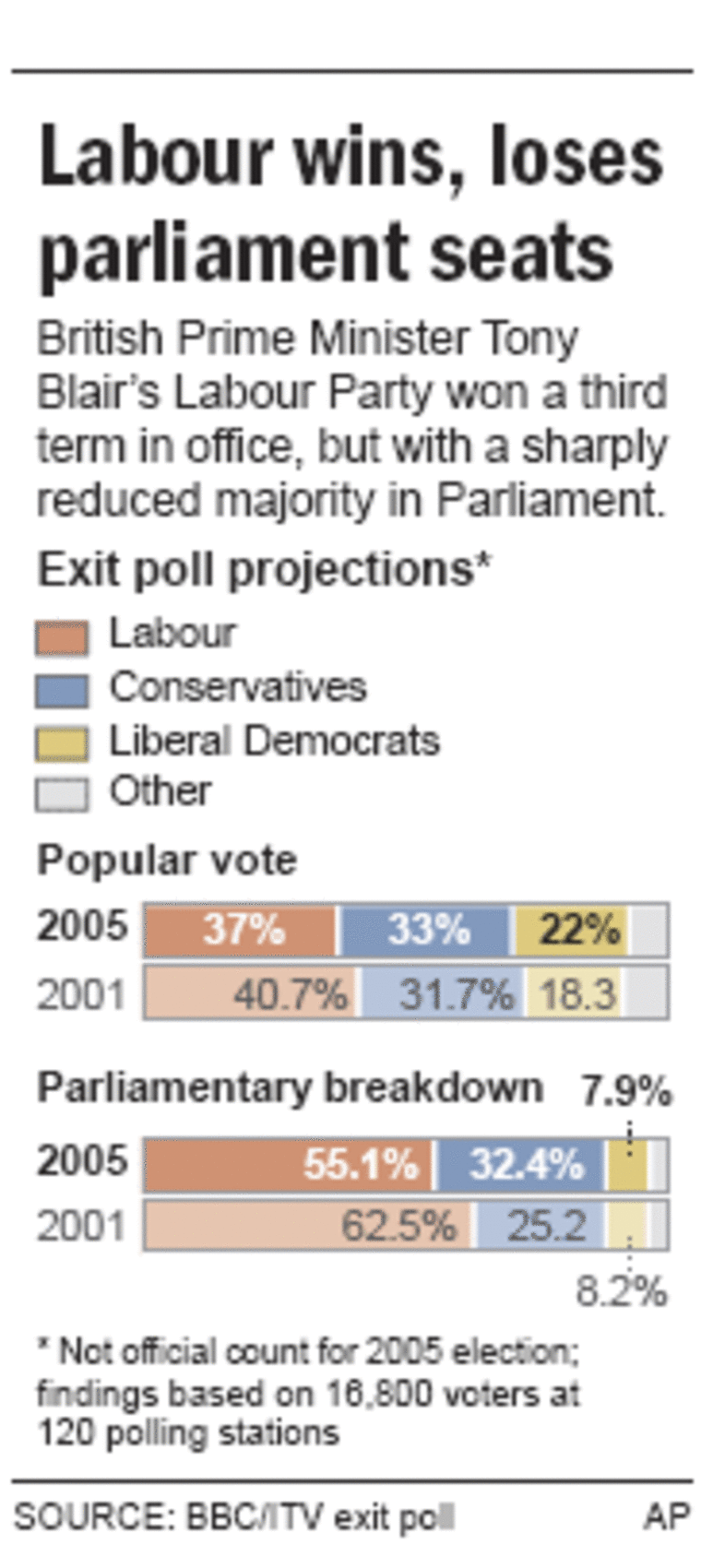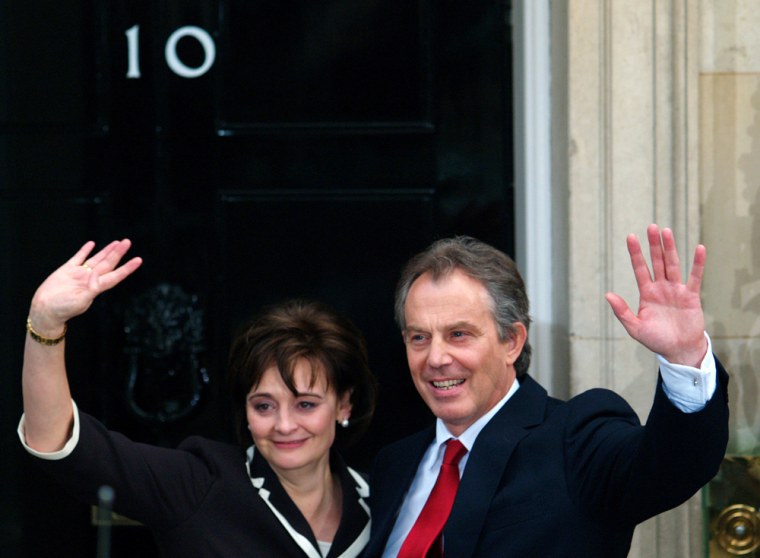Prime Minister Tony Blair unveiled his Cabinet on Friday, changing leadership in defense, health and the House of Commons, and putting his government back in business after a third term victory that was dampened by a reduced majority.
Blair, who decided to skip a trip to Moscow next week to mark the 60th anniversary of the Allied victory over the Nazis, focused on changes in his new government for most of Friday. Party leaders held meetings for much of the day.
Geoff Hoon was named leader of the House of Commons, John Reid became Defense Secretary and Patricia Hewitt left her post as Trade Secretary for Health Secretary.
Key figures such as Treasury chief Gordon Brown — widely seen as Blair’s likely successor — kept his post as Chancellor of the Exchequer while Jack Straw remained Foreign Secretary.
Former Home Secretary David Blunkett was appointed Secretary of State for Work and Pensions. Blunkett was known as a peacemaker in the party but resigned amid the fallout from his affair with a married woman.
Blair could be forced to step down
Earlier Friday, Blair acknowledged the Iraq war was “a deeply divisive issue” that hurt his Labour Party, but he said Britons were ready to “move on” and focus on the future.

Blair weathered a backlash from voters in Thursday’s election, although Labour’s majority in the House of Commons was reduced significantly to about 60 seats instead of the previous 161. That could weaken Blair’s mandate and force him to step down earlier than planned during his five-year term.
“I know that Iraq has been a deeply divisive issue in this country. ... But I also know and believe that after this election people want to move on, they want to focus on the future — in Iraq and here,” Blair said outside his office after returning from Buckingham Palace, where Queen Elizabeth II confirmed his victory.
President Bush, who left Friday for a five-day, four-country tour of central and eastern Europe, called Blair from Air Force One to congratulate him on his re-election, said White House spokeswoman Corry Schiermeyer.
'Mr. Blair, this is for Iraq'
In a sign of the strength of the anti-war sentiment, one of Blair’s harshest critics was re-elected to Parliament.
“Mr. Blair, this is for Iraq,” said anti-war activist George Galloway, who was expelled from Labour after urging British soldiers not to fight in Iraq. “All the people you killed, all the lies you told, have come back to haunt you.
“And the best thing the Labour Party could do is sack you.”
Galloway campaigned to end the economic sanctions imposed on Iraq after its 1990 invasion of Kuwait and once said on Arab television that Arab nations should “stand by the Iraqi people.” Almost half of the voters in his district are Muslim.
Conservatives to choose new leader
Later Friday, Conservative Party leader Michael Howard said he planned to step down because “I did not achieve what I set out to achieve.” He said he would stay on until the party considers whether to change the rules governing the choice of his successor.
Under Howard, the Tories added more than 30 seats to their total of 160 in the last Parliament.
Labour needed at least 324 seats to form a majority in the 646-seat House of Commons. With 626 seats reporting, Labour had 355 seats, the main opposition Conservatives 197, Liberal Democrats 62, and independents and smaller parties 12.
'I have listened'
The slip in Labour’s lead could loosen Blair’s grip on power. His Cabinet colleague and rival, Brown, is widely regarded as his likely successor.
“I have listened and I have learned,” Blair said. “And I think I have a very clear idea of what the British people now expect from this government for a third term.”
Never before has the Labour Party won three straight elections. Margaret Thatcher was the only other prime minister in modern British history to do so, accomplishing the feat for the Conservatives.
Promise of 'radical' legislation
“I think we can be really proud of what we’ve achieved,” Blair, who turned 52 Friday, told supporters on his return from Sedgefield to London. “We’ve got a mandate to govern this country again.”
Blair on Friday promised “radical” legislation on health, education and law and order. The government’s program will be announced by the queen at the state opening of Parliament on May 17.
That margin of a Labour victory could have consequences for Britain’s “special relationship” with the United States. The battering Blair took over Iraq during the campaign suggested that any future British leader will probably be wary of backing Washington militarily in the face of hostile domestic opinion.
“One of the conclusions of this is that he (Blair) certainly does not have a mandate to launch another war along with George Bush,” said Robin Cook, who resigned from Blair’s Cabinet in opposition to the war.
A politically weakened Blair, who has said he will not seek another term, also could find it difficult to persuade British voters to approve a proposed constitution for the European Union, which requires ratification by all member states.
Conservative lawmaker Boris Johnson said the result reflected the “slow, sad political extinction of Tony Blair.”
Results in 610 constituencies showed a turnout of more than 61 percent of the electorate, up 2 percent from 2001’s record low.
